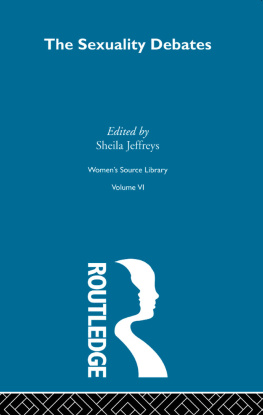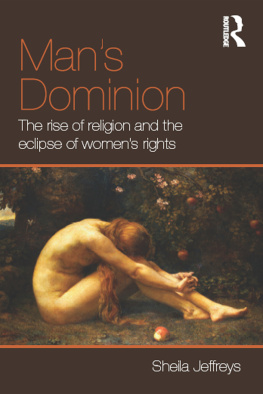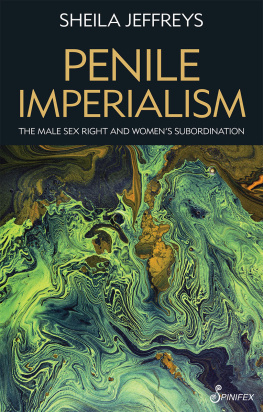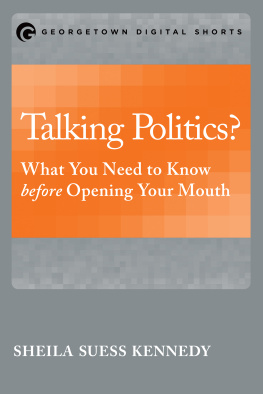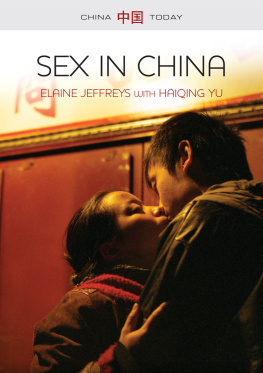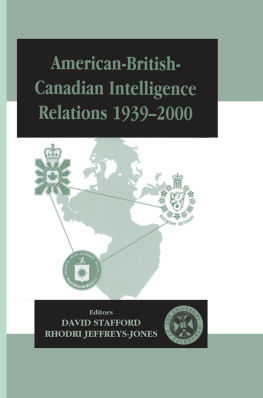WOMENS SOURCE LIBRARYWOMENS SOURCE LIBRARY
VOLUME I
The Education Papers
Edited by Dale Spender
VOLUME II
The Radical Womens Press of the 1850s
Edited by Ann Russo and Cheris Kramarae
VOLUME III
Barbara Leigh Smith Bodichon and the Langham Place Group
Edited by Candida Ann Lacey
VOLUME IV
The Revolution in Words
Edited by Lana F. Rakow and Cheris Kramarae
VOLUME V
Before the Vote was Won
Edited by Jane Lewis
VOLUME VI
The Sexuality Debates
Edited by Sheila Jeffreys
VOLUME VII
Womens Fabian Tracts
Edited by Sally Alexander
VOLUME VIII
Suffrage and the Pankhursts
Edited by Jane Marcus
VOLUME IX
The Non-Violent Militant
Edited by Carol McPhee and Ann Fitzgerald

First published 1987 by Routledge
This edition first published 2001
by Routledge
2 Park Square, Milton Park, Abingdon, Oxon, OX14 4RN
Simultaneously published in the USA and Canada
by Routledge 270 Madison Ave, New York NY 10016
Routledge is an imprint of the Taylor & Francis Group
First issued in paperback 2010
Editorial material and selection 1987, 2001 Sheila Jeffreys; individual owners retain copyright in their own material.
Typeset in Times by Keystroke, Jacaranda Lodge, Wolverhampton
All rights reserved. No part of this book may be reprinted or reproduced or utilised in any form or by any electronic, mechanical, or other means, now known or hereafter invented, including photocopying and recording, or in any information storage or retrieval system, without permission in writing from the publishers.
British Library Cataloguing in Publication Data A catalogue record for this book is available from the British Library
Library of Congress Cataloging in Publication Data A catalog record for this book has been requested
ISBN 978-0-415-25669-8 (Set)
ISBN 978-0-415-25691-9 (hbk) (Volume VI)
ISBN 978-0-415-60642-4 (pbk) (Volume VI)
ISBN 978-1-136-40996-7 (ePub)
Publishers note
The publisher has gone to great lengths to ensure the quality of this reprint but points out that some imperfections in the original book may be apparent.
Historians have represented the history of sexuality in the last hundred years as a story of gradual but regular progress from the darkness of Victorian prudery to the light of sexual freedom. From a feminist perspective the picture is very different. With the publication of the documents on sexuality collected here it is possible to examine with close and sensitive attention what was really happening in the massive and heated debate around sexuality which took place in the late nineteenth and early twentieth century.
From the 1870s to the 1920s, feminists launched a critique of male sexuality and its effects upon women. Concentrating on areas in which the exercise of male sexuality was particularly damaging to women, such as the use of women in prostitution, the sexual abuse of children, rape in marriage, the spread of venereal disease, women organised to protect women and children. They demanded the transformation of male sexuality. They did not believe that male sexuality was innately different from that of women and asserted that men could take responsibility for their sexual behaviour instead of always blaming women, that men could exercise self-control and did not need the sacrifice of women and children to their pleasures.
Surprisingly, considering the volume of womens activities and theory in this area, collections of documents on women in the nineteenth century have rarely contained much on sexuality. Traditional historians writing of late nineteenth-century feminism have tended to ignore these campaigns entirely. Where they have mentioned the feminist ideas on sexuality they have interpreted them as prudish and puritanical. It may be that these historians were embarrassed by the fact that the women whom they recognised as having quite legitimate aims in other areas, i.e. work, education, suffrage, thought about sexuality in ways which, to minds trained in the sexual ideology of the twentieth century, seemed retrogressive.
The language with which nineteenth-century feminists described sexuality, in terms such as sexual excess and continence, has proved a stumbling-block for feminist historians as well. The language available to the women campaigners when they were trying to express their anxieties and their hopes was not created by the women themselves. Similarly today, feminists wrestle to gain some grasp on their feelings about sex within an ideology of compulsory sexual activity, using terms such as sexual needs, orgasm and frustration which would have been quite as alien to the feminists of the 1890s and are not necessarily more useful to us today in articulating our experience and hopes about sexuality. The women campaigners against sexual violence and the exploitation of women shared a lack of enthusiasm for sexual intercourse. To understand their work it is important to step outside sexual revolution ideology as much as is possible for those of us who were raised within it.
of this selection contains source material from the male doctors whose work on sexuality has provided historians of the nineteenth century with both horrifying and amusing examples of how sexuality was thought about by middle-class males. Isaac Baker Brown used clitoridectomy to cure women of complaints as various as epilepsy, not wanting to have anything to do with their husbands and painful periods. Clitoridectomy was supposed to cure masturbation and it was this self-abuse which was thought by such doctors to lie at the root of whatever ills might befall women. Such gross mutilation of women who did not conform to the doctors favoured stereotypes did not cease by the 1870s. In the twentieth century operations are carried out on women in the US and in Britain to make womens vaginas fit their husbands penises, and to move their clitorises nearer their vaginas on the grounds that this would make them more likely to experience pleasure whilst the husband experienced his own. The difference is that whereas in the nineteenth century operations were carried out on women to prevent them experiencing sexual pleasure, in this century it has been womens failure to experience pleasure when men felt they should which has occasioned these gruesome mutilations.
Feminist concern at mens abuse of women in prostitution began with the campaign to abolish the Contagious Diseases Acts. These Acts of the 1860s, designed to decrease venereal disease in the troops, allowed metropolitan policemen drafted into garrison ports and towns to stop any woman they suspected of working as a prostitute and subject her to examination. Women who refused examination were imprisoned until they agreed and women found (or suspected, since medical knowledge was far from competent) to be diseased were imprisoned until believed by the doctors to be cured.1
The documents in illustrate the politics of the women campaigners in the Ladies National Association which was set up in 1870 to fight for repeal of the Acts. The Acts were suspended in 1883 and repealed in 1886. Later documents in this section relate to the formation of the organisation which succeeded the Ladies National Association in 1913, the Association for Moral and Social Hygiene, which combated the international traffic in women and campaigned against renewed efforts to introduce legislation for the regulation of prostitutes.


